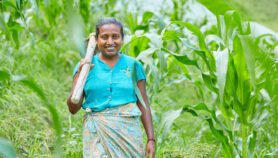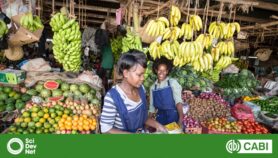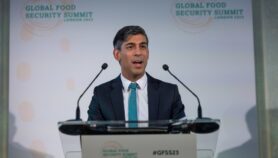By: Pratchaya W.
Send to a friend
The details you provide on this page will not be used to send unsolicited email, and will not be sold to a 3rd party. See privacy policy.
Tests on a tool to help policymakers assess the impact of bioenergy development on food security have begun in developing countries.
The ‘analytical framework’, developed by the UN Food and Agriculture Organization (FAO), uses country data to predict the effects of bioenergy production. It will be tested on data from Peru, Tanzania and Thailand before being released to the international community.
The trials were announced at an FAO meeting in Rome, Italy, this month (5–6 February).
Erika Felix, technical advisor at the FAO’s Bioenergy and Food Security Project (BEFS), which is overseeing the project, told SciDev.Net that the team is putting real data from the three countries into the tool.
The countries are geographically different, so are likely to contribute unique lessons about the link between food security and bioenergy development, says Felix. She adds that other criteria — including a country’s capacity to produce bioenergy, degree of existing food insecurity and governance — were also taken into account for the selection.
The project was initiated last year after the FAO received requests for bioenergy technical assistance from more than 30 countries.
Under the framework, a country’s policy objectives for bioenergy production are identified first — along with forecasts of economic and population growth, and technical progress.
Potential land and its quality is examined, along with climate, water supplies, farm management and land-use change patterns to help identify the potential biomass a country can produce.
The cost of biomass production, economic potential, and regional, national and household-level consequences on food security would then be further examined, providing policymakers with a rational basis to make decisions on bioenergy schemes, says Felix.
Montol Jeamchareon, deputy secretary general of the Office of Agricultural Economics in Thailand, said implementation of the analytical framework would be helpful since several developing countries like Thailand lacked comprehensive assessment regarding impacts of bioenergy development on food security.
An assessment in Thailand, for example, was still largely based on economic aspects of the production, Jeamchareon said.













